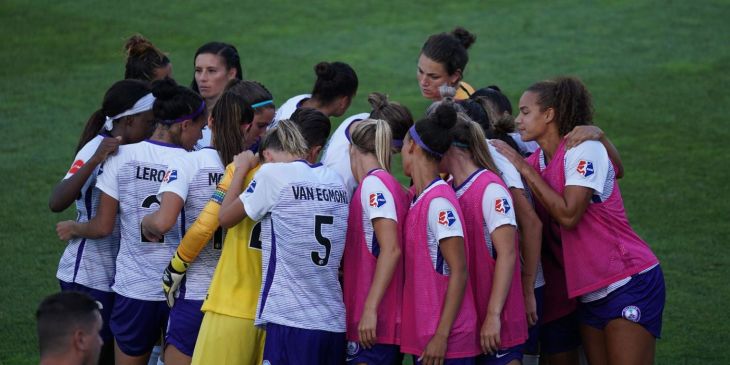The Team Captain In College Sports

Wherever you go, you find people in leadership positions. The branch manager of the local grocery store, the mayor of a city, politicians, and sports coaches.
And then there are young people in leadership positions, who gain their invaluable first experiences as leaders: captains in high school teams.
A few years down the road, there will be a need for designated people, who will receive the trust from coaches in order to become team captain for their college team.
But what are the coaching staff's expectations, the "job description" if you like? And equally important, what characteristics qualify an individual to be chosen team captain? Let's have a look at that in this week's edition of our Friday Scholarship Guide.
1. Role Of The College Team Captain
[Captain Resources Blog]
The coach needs a "partner" in the team, somebody he can trust 100%. Quite logically, that should be a person, who has shown a high degree of loyalty and commitment. Not necessarily somebody who just follows blindly, but an individual who knows when and how to raise concerns in private with the coaching staff.
Now, for the team captain to be an effective partner, it's key that the rest of the team does have a great deal of respect for the designated athlete. That doesn't mean they need to look up to that person, but comprehend why the coaches have selected the athlete to be team captain. In other words, stand behind the coaches' decision.
It's going to be more difficult for athletes to accept a captain, who has shown behaviour (perhaps partly unknown to coaches), which is not in line of what the coach expects from the entire squad. For example, an athlete who consistently talks behind the coaches' back, is running late for practice, and doesn't embrace the tough moments in games.
The challenging task for the coaches is to identify those athletes, who incorporate all of these characteristics. Coaches will be able to make a wiser decision, the better they know the potential candidates. That's why quite often, you see upperclassmen being trusted with the captain position, as coaches have had time to assess them for 2-3 years of their collegiate career.
2. What To Expect From The Captain
A captain is neither assistant coach nor volunteer coach. She's the athlete who is expected to be what the coaches preach day in and day out, a role model for the rest of the squad. Say, a women's head coach has outlined a team culture, she'd like to establish within her team. The culture is built on a set of behavioural rules, such as no whining, no excuses, unabated optimism, an "everything-is-possible mindset". Obviously, her recruiting work will follow this culture in order to only add players to the team, who she believes can flourish in such a culture.
The captain needs to have displayed that she can be the ambassador of such a culture. She would be the person who looks for mistakes in her own behaviour first, rather than blaming others. Looking for ways of winning until the referee ends the game or the match point's been won by the other team. Somebody who represents the belief that the match can be turned around no matter how ugly things may look at times.
It doesn't mean she needs to be the loudest, most extroverted person out there, but she must be the person all team members can turn to and instantly be reminded of and know what to do.
It should be the person, the others trust to talk to in case there is a problem or in case there is an issue they would like to address. And in most cases, students might have an easier time first talking to a peer than to the coach about any sensitive topics.
On top of that, yes, quite naturally you would be the person a coach turns to in case she needs help with running the practice, putting together a schedule or assisting in any other, more general ways. But it may also include guiding athletes on the field toward coach-dictated instructions, whenever the sport and/or situation requires it.

3. What Not To Do As Captain
This is something names captains may sometimes feel in the beginning:
No, you do not. It's great if being trusted to lead makes you reflect over you behaviour and sparks an interest in leadership quite generally, but it must certainly not stress you out and lead to a huge change in your own behavior. Nothing describes this better than the following sentence:
You have been selected captain because you care and coaches believe in your abilities to be there for the team. Keep doing that and you'll make a great captain!
Another really important thing is not to mix up being captain with being "the boss". Remember we mentioned you're not the coach? Keep that in mind, as none of your teammates would love to be told what to do by you. A captain should lead, not boss around.
4. College Leadership Skills - Lessons For Life
In an ideal world, that question doesn't even come to mind. It should not be something that you work towards, but something that is given to you because you have earned it. If you work towards it, chances are you are going to be uptight about it, perhaps making you come across unauthentically.
There are obviously very beneficial side effects to you becoming team captain. At some point after your sports career, you will be getting a new job. A job you need to apply for and experience in a leadership position is certainly something HR recruiters look out for. Further down the road, chances are you might be considered for positions that come with more responsibility. Again, having gained experience as team captain shows that you have an understanding of what it means to be a key element of a team, while accepting the additional responsibility of leading the team on the field. Invaluable experience that may help you stand out in potential future applications.
Very few student athletes receive the honor of leading a team and those who do, will understand the magnitude and responsibility that comes with it over time.
We won't make you a future team leader in college, but we help you get recruited into your dream college. Have a look at what we have in store for you on our recruiting platform.
Shh, don't tell anyone: we'll make sure we find you a team, in which you identify fully with the culture - just the way we described above. :D